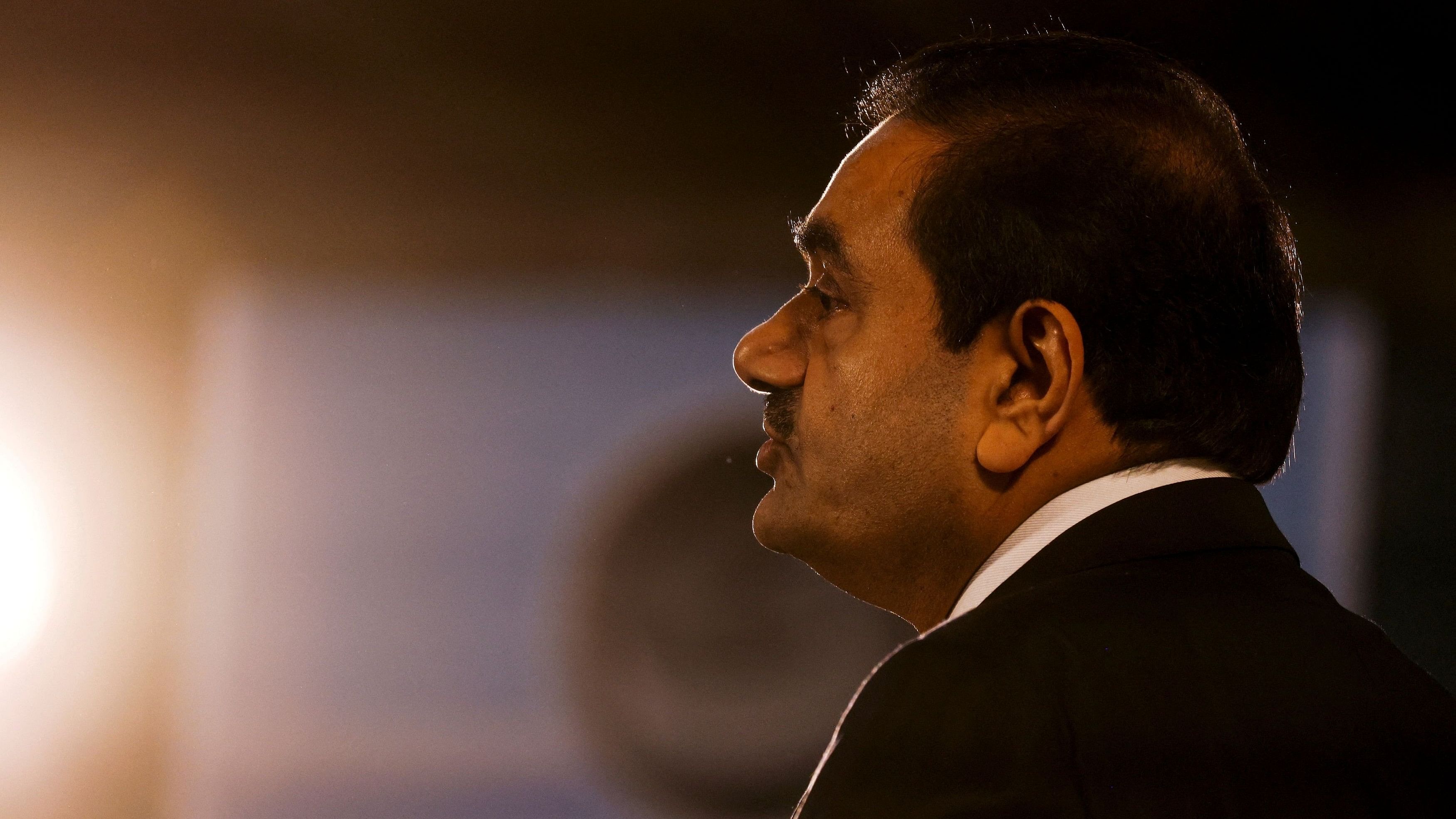
Gautam Adani.
Credit: Reuters File Photo
US prosecutors have widened their probe of the Adani Group to focus on whether the company may have engaged in bribery as well as the conduct of the company’s billionaire founder, according to people with direct knowledge of the matter.
Investigators are digging into whether an Adani entity, or people linked to the company, including Gautam Adani, were involved in paying officials in India for favourable treatment on an energy project, said the people, who asked not to be identified discussing the confidential effort. The probe, which is also looking at Indian renewable energy company Azure Power Global Ltd., is being handled by the US Attorney’s Office for the Eastern District of New York and the Justice Department’s fraud unit in Washington, said people familiar with the matter.
“We are not aware of any investigation against our chairman,” Adani Group said in an emailed statement. “As a business group that operates with the highest standards of governance, we are subject to and fully compliant with anti-corruption and anti-bribery laws in India and other countries.”
Representatives for the Justice Department in Brooklyn and Washington declined to comment. Azure didn’t respond to requests for comment. Gautam Adani, his company and Azure haven’t been charged with wrongdoing by the Justice Department, and investigations don’t always lead to prosecutions.
In addition to being a monolithic presence in its home country, with ports, airports, power lines and highway developments, Adani Group attracts capital from around the world. US law allows federal prosecutors to pursue foreign corruption allegations if they involve certain links to American investors or markets.
Adani’s sprawling empire was rocked early last year by claims from short-seller Hindenburg Research that the conglomerate manipulated its stock price and committed accounting fraud. The group has vigorously denied those allegations and the shares have largely climbed back from their initial plunge.
Still, the report prompted the Justice Department, as well as the Securities and Exchange Commission, to look into some of the claims, Bloomberg News reported last year.
The Adani probe is now at an advanced stage, according to the people. The DOJ can choose to pursue its investigations without notifying the parties.
Adani Group and Azure compete in India’s green-energy sector, and in recent years both have won contracts for projects as part of the same state-run solar program. Adani is seeking to position itself as world-leading renewable-energy company at a time when Prime Minister Narendra Modi, a perceived close ally of Gautam Adani, is pushing major green initiatives.
Azure has been dealing with fallout from whistleblower complaints of illicit payments and was delisted from the New York Stock Exchange late last year over delayed filings.
Azure said last year that it was cooperating with the Justice Department and SEC after an internal probe found evidence that people previously affiliated with the firm may have been aware, or been involved in, an “apparent scheme with persons outside the Parent to make improper payments in relation to certain projects.”
FCPA cases
The Foreign Corrupt Practices Act makes it a crime for a company or person with US links — such as a public listing, American investors or a joint venture — to pay or offer something of value to another government’s officials for favorable treatment. Prosecutors in Brooklyn have a history of aggressively pursuing those cases. Adani Group doesn’t trade in the US, but it does have American investors.
So-called FCPA investigations can take years, complicated by the need to gather evidence and interview witnesses who may be outside the US. The cases, however, are often high-profile and can result in huge fines for companies and big wins for prosecutors.
Officials have increasingly sought to bring FCPA cases against executives, although it’s been uncommon for the head of a major company to be charged.
Adani rebound
Gautam Adani, 61, has led the pushback against previous claims of impropriety. In a July speech to shareholders, he described Hindenburg Research’s allegations as “malicious” and “false narratives.”
After initially cratering on the short-seller’s claims, flagship Adani Enterprises Ltd. shares have gained more than 70 per cent over the past year. Gautam Adani’s fortune has again surged toward $100 billion, making him the world’s 14th richest person, according to Bloomberg Billionaires Index.
India also is now poised to resolve its own investigations into the firm after the country’s top court in January ordered regulators there to conclude their investigation within three months, and said no more probes were needed. That came after a committee appointed by that court last year found no regulatory failure nor signs of price manipulation in Adani Group stocks.
From the start, the US scrutiny of Adani Group has been laced with geopolitical implications. The company is deeply intertwined with the economy in India, which the White House has been courting as an ally to counter China. Both Adani and Modi hail from the western Indian state of Gujarat and have known each other for years.
The DOJ probe hasn’t stopped Washington from working with Adani Group entities.
Last year, the US International Development Finance Corp. said it would provide $553 million in financing to an Adani unit for a port terminal in Sri Lanka’s capital, marking the government agency’s largest infrastructure investment in Asia, with a goal of curbing China’s influence in the region.
A senior US official told Bloomberg News that before authorizing the loan, the government found Hindenburg’s allegations weren’t applicable to the subsidiary spearheading the Sri Lankan project.